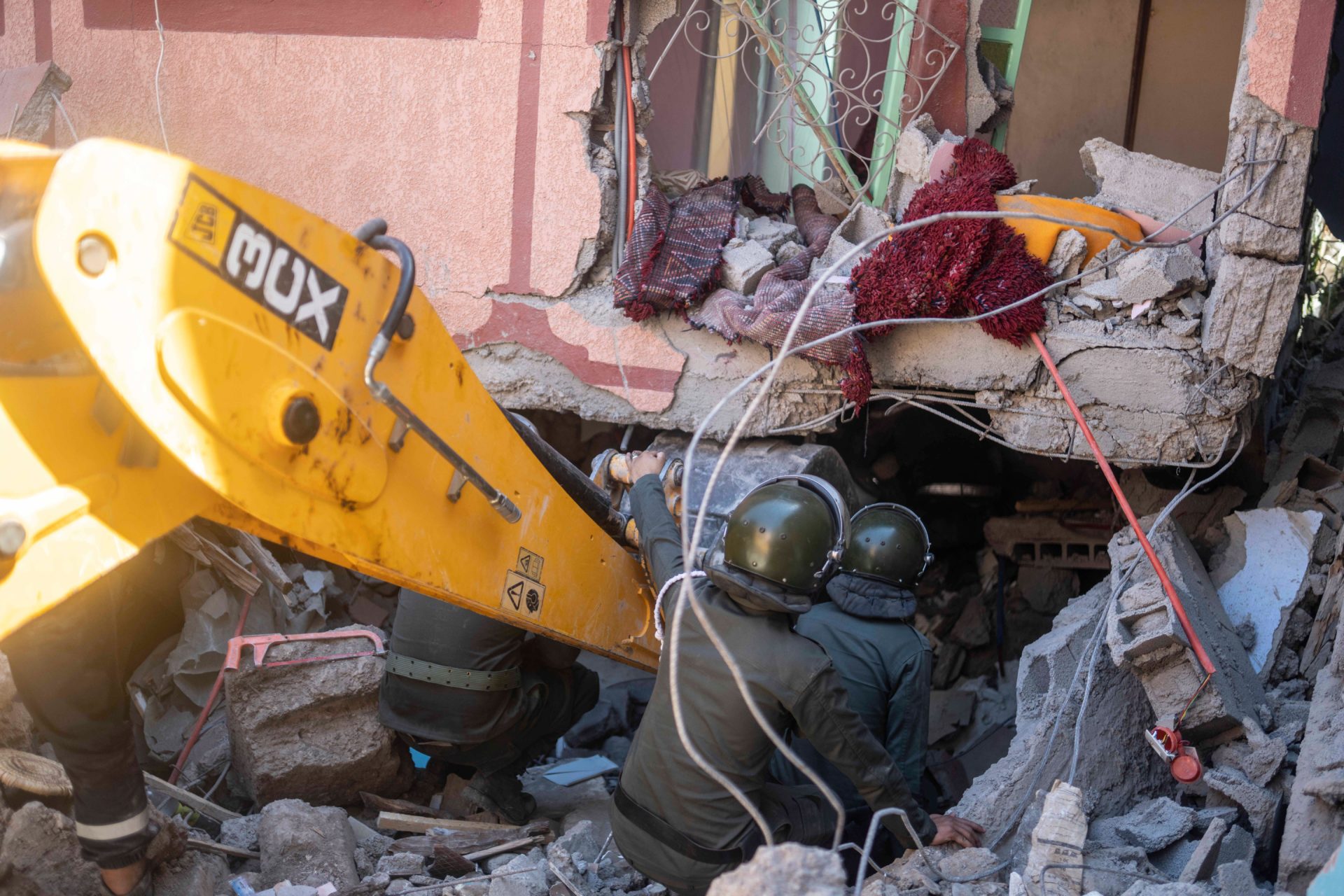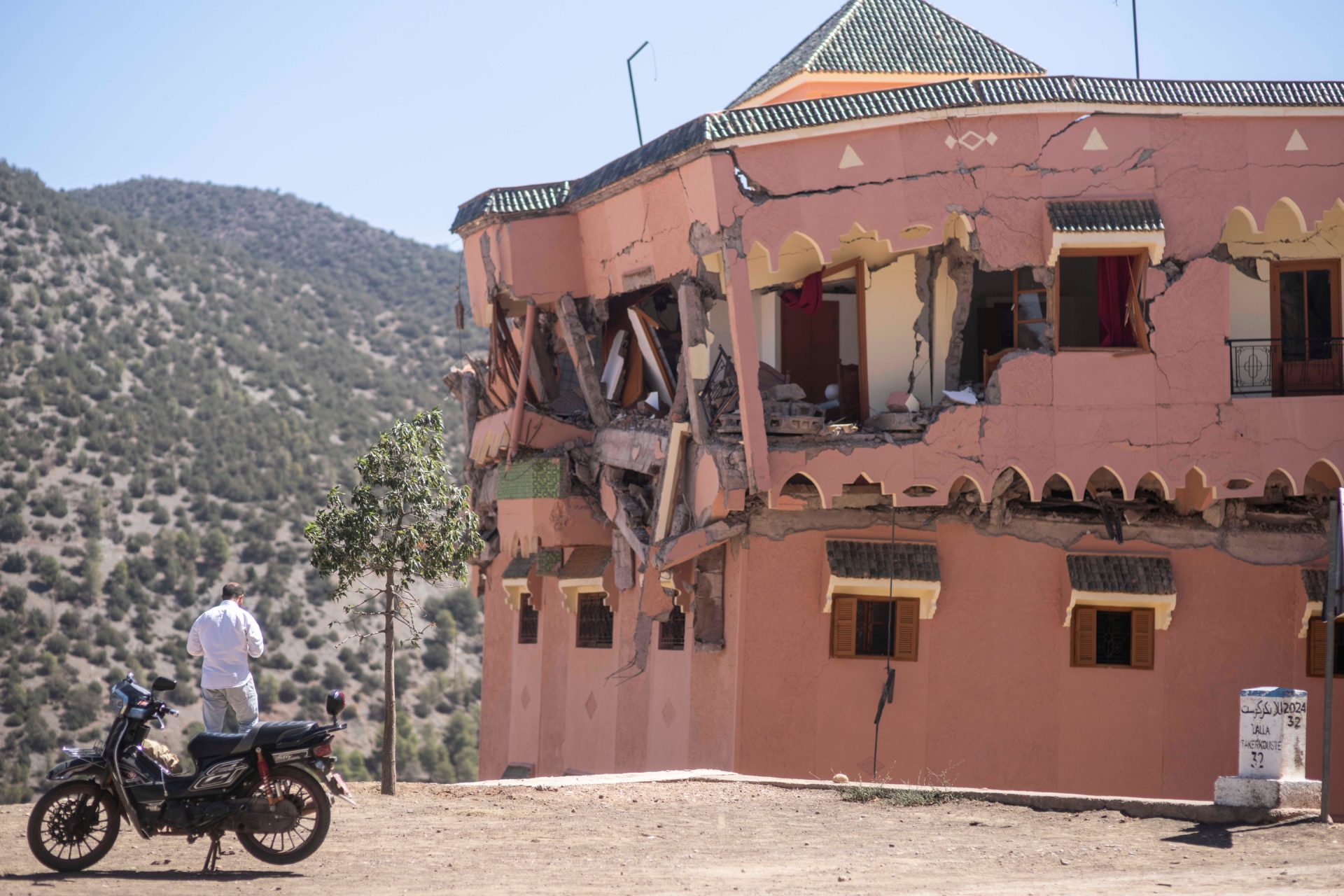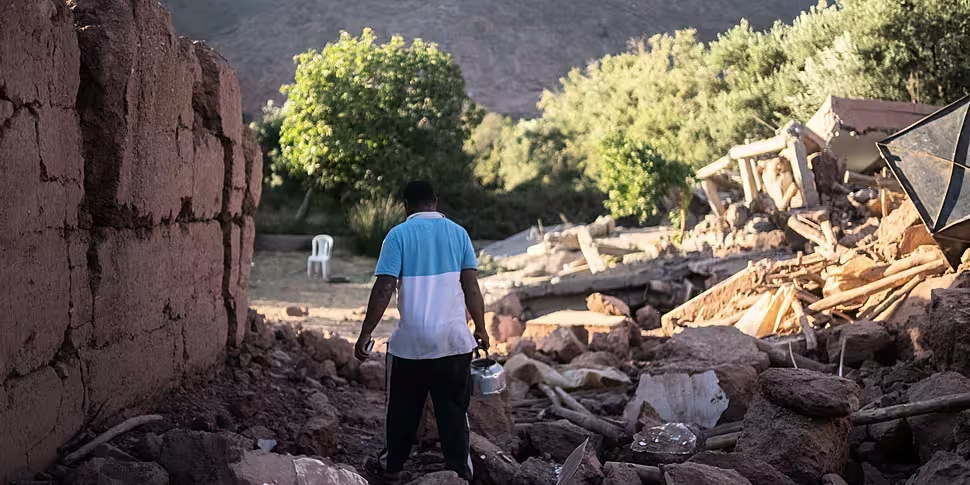Over 2,000 people are dead following a 6.8 magnitude earthquake around the western area of Morocco.
At least 1,800 people have also been injured and 300,000 have been affected as the full scope of the earthquake is starting to be understood, with several regions of the country affected.
The tremor first hit in the Atlas Mountains - but there was also extensive damage in Marrakesh, around 70 kilometres from the epicentre.
Experts are warning the next 48 hours will be "critical" for saving lives, as UNICEF Executive Director Peter Power said the death toll is expected to rise.
“Our teams are cutting out assessments to see if outside assistance is necessary,” he said.
“We're going to keep the situation under review as we get greater access to the more remote areas.
 Security forces take part in a rescue operation after an earthquake, in Moulay Brahim village, near Marrakech, Morocco, 09/09/2023. Image: Associated Press / Alamy Stock Photo
Security forces take part in a rescue operation after an earthquake, in Moulay Brahim village, near Marrakech, Morocco, 09/09/2023. Image: Associated Press / Alamy Stock Photo“The damage has been widespread, ranging from Marrakech to Casablanca right up to the High Atlas Mountains.
“A number of roads into the High Atlas Mountains are blocked, and unfortunately in that area, buildings are not very strong – some are just made of mud – and that has given rise to a lot of casualties.”
Nadia Cryer was in Marrakesh when the earthquake first struck on Friday night, and said it felt like “the end of the world”.
“I was just relaxed and walking around the old town, and I was just doing my shopping and within seconds, I just thought, ‘What's going on?’,” she said.
“I was just terrified... in two minutes, I was thinking, ‘I’m dying’.
“It just felt like a war.”
 A man stands next to a damaged hotel after the earthquake in Moulay Brahim village, near the epicentre of the earthquake, outside Marrakech, Morocco, 09/09/2023. Image: Associated Press / Alamy Stock Photo
A man stands next to a damaged hotel after the earthquake in Moulay Brahim village, near the epicentre of the earthquake, outside Marrakech, Morocco, 09/09/2023. Image: Associated Press / Alamy Stock PhotoThe Department of Foreign Affairs has issued a high degree of caution to holidaymakers planning on travelling to Morocco.
Air and Travel Editor Eoghan Corry said, however, most people are still happy to go to Morocco.
“The epicentre of our tourism is a distance from where the earthquake impacted in the Atlas Mountains,” he said.
“There has been structural damage to hotels in Marrakech [but] most of the Irish tourists are in Agadir.”









